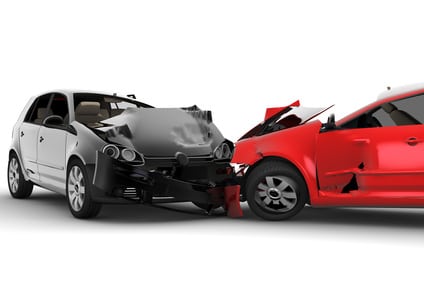Being involved in a car accident can be a traumatic experience, especially if you were injured.
Accidents can happen at any time, even if someone is a careful driver.
If you are in an accident, it’s crucial to remain calm as this will help you document everything and stay safe.
Understandably, you may be wondering what to do after a car accident. Here are several things you can do that will help protect you and your interests.
Pull Over Somewhere Safe
If you are physically able, you should pull somewhere safe and check for injuries. If you or another party suffered injuries, you should contact 911 to get an ambulance and police dispatched to the scene. If the injuries are only minor, someone should still call the police.
Exchange Information and Assess the Scene
While you are waiting for the police to arrive, you should exchange information. Be sure to get:
- The other party’s name and address;
- Information about the other party’s insurance company and policy; and
- Contact information for all witnesses.
The police will also get everyone’s contact information, but it’s best to start exchanging information first in case someone tries to leave or a witness has to be somewhere and can’t wait for the police to arrive.
What to Do After a Minor Car Accident
If you can take scene photos without further injuring yourself, try to document the scene as much as possible. Take pictures of all involved vehicles, damage, and any other essential details. Maybe it was raining, there was a hazard in the road, trees were blocking a stop sign, etc.
Does your insurance company have a reporting app? Some companies now have phone apps with a reporting checklist that will help ensure you get all pertinent information at the scene. If not, you can always use WreckCheck from the National Association of Insurance Commissioners. It will record the time of the accident, add audio and written details, and submit everything to your own insurance carrier.
Report the Accident
If you don’t submit your claim through an app, you’ll want to notify your insurance company as soon as possible. Many policies require that you report the accident right away. When you contact them, inquire as to whether you have medical payments coverage on your policy.
This coverage could help pay for some of your accident-related medical expenses.
You might be wondering what to do after a car accident that’s not your fault. Should you still report it to your own carrier? Yes, it’s essential to get the accident claim set up. If the investigation reveals it’s the other party’s fault, it should not count against you or your rates.
Seek Medical Attention
Even if you were not transported from the scene via ambulance, you still need to seek medical treatment immediately. Some injuries are not immediately apparent. With soft tissue injuries, it can take one or two days before some people start noticing pain. Don’t assume that because you feel ok right now that everything is fine. You could have internal injuries, spinal damage, or other injuries that are not immediately visible.
Contact a Personal Injury Attorney
If you were injured in a car accident caused by someone else’s negligence, you might have the legal right to bring a claim against the at-fault party. Contacting a personal injury lawyer can help you recover the financial compensation you deserve for your medical expenses, time off work, vehicle damages, pain and suffering, and more. Your attorney will also handle negotiations with the other party’s insurance company so you can concentrate on your recovery and getting back to work.







